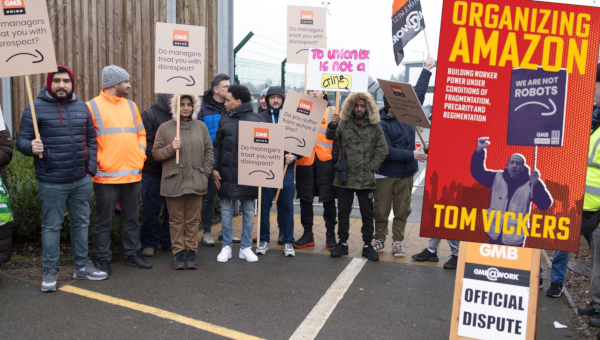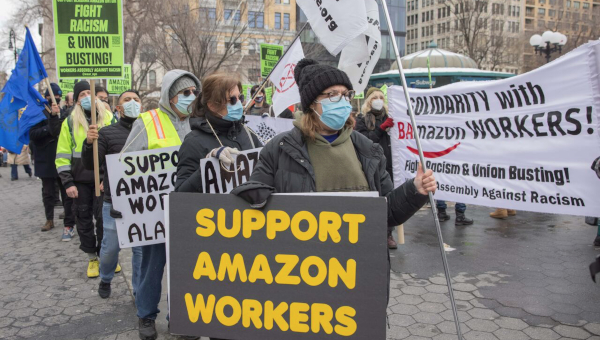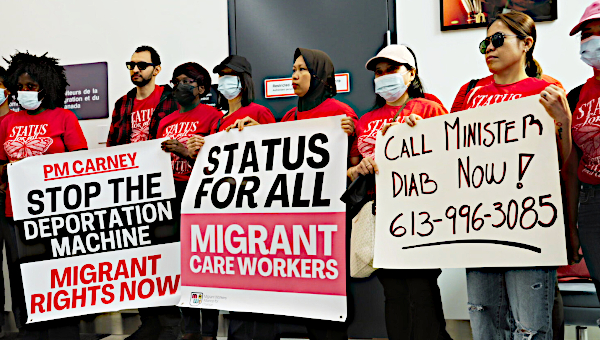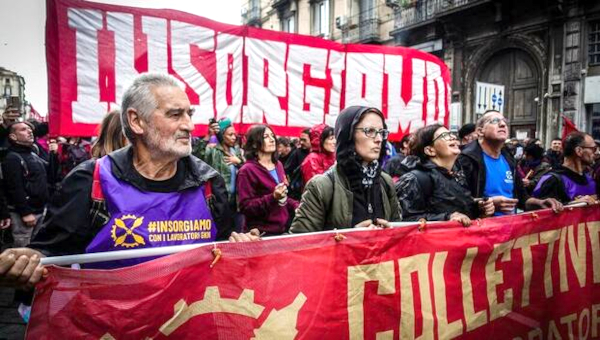Trade War and Attacks on National Sovereignty: How Unions Can Fight Back
The United States has launched a full-scale attack on our economy and our very existence as a sovereign country. Canadians have responded by boycotting US products, buying Canadian, and cancelling travel plans to the US. But as unionists, how can we respond collectively through our unions? What should be the role of the labour movement?
The media, together with Prime Minister Mark Carney and Conservative Party leader Pierre Poilievre, want to portray the upcoming federal election as a choice of who is best to negotiate with US President Donald Trump. But the real issue should be which party has the best plan to create a strong, independent, and diversified economy that meets the needs of working-class people.

The Short Term – The Federal Election and a “Public Sector Solution”
We cannot rely on the private sector for this. Its only interest is to increase profits for investors, no matter the consequences for workers or the environment.
Today, there is an urgent need for the domestic production of medicines and vaccines, massive numbers of new homes, and a major expansion of public transit. We need an economic strategy to revitalise our manufacturing industries and diversify our trading relationships. Questions of climate and the environment must be central in all this.
The labour movement needs to make this election about policies and plans – not personalities. It is time for Canadian political leaders to acknowledge that greater public sector investment is not the problem – it is a necessary part of the solution. The labour movement can play a key role to make this happen. We can force political leaders at all levels of government to adopt a “Public Sector Solution.”
Remembering Our Past – Working With Allies
Labour has a long history of working with allies to promote economic, cultural, and political independence.
In the early 1970s labour activists and leaders were involved in the Waffle Movement, a left-wing faction within the New Democratic Party that promoted greater Canadian economic independence from the US.
Later, during the free trade debate in the 1980s, the labour movement united with progressive forces to create the Pro-Canada Network (PCN), which led the opposition to the Free Trade Agreement with the United States. These same groups worked together under the Action Canada Movement (ACN) to fight against the North American Free Trade Agreement (NAFTA).
Labour has also been involved in promoting the development of alternatives to capitalist-led neoliberal globalization. In 1980, unions were highly involved in the creation and funding of the Canadian Centre for Policy Alternatives (CCPA). In 1995, unions participated in the publication of the CCPA’s first national Alternative Federal Budget, providing realizable alternatives to austerity and neoliberalism.
At the Bargaining Table: No Concessions
Trump’s attack on the Canadian economy will result in higher prices and significant job losses. Faced with higher costs, private-sector employers will push unions for concessions in the name of competitiveness. With higher social spending and shrinking tax revenues, we can expect similar attacks in the public sector.
As the tariff shock intensifies, we can expect more strikes and lock-outs, as employers try to shift the costs of Trump’s assault onto workers. But there is nothing patriotic about demanding rollbacks from workers. For the benefit of our country, the labour movement must resist concessions and demand real improvements in wages and working conditions.
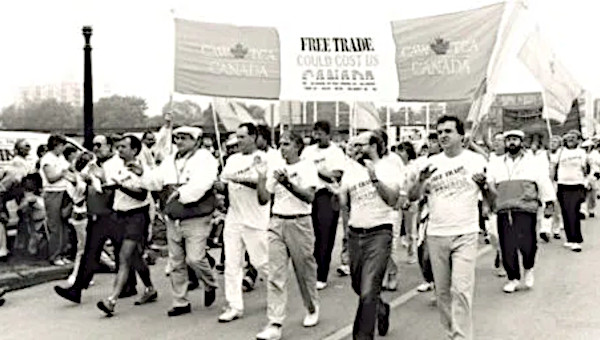
Mutual Support Among Unions
Mutual support among unions will be key to turning back this imminent assault at bargaining tables. Some labour councils have setup active strike support committees that organize fundraising for striking workers, help create public awareness of issues, and provide picket-line support for strikes and lock-outs. We will need strike-support committees everywhere.
Working With Our Allies – In Our Communities
The austerity measures imposed by governments will have the greatest impact on our most vulnerable: racialized people, women, the poor, students, Indigenous people, immigrants and refugees, and persons with disabilities. Labour needs to work with all sections of the working class. At the local level, this means participating in community coalitions and supporting struggles as they occur. Labour councils have an important role to play in organizing active support in community struggles. For labour councils to be effective, all local unions must be affiliated and active.
It’s Time For a New “Network”
To force governments at all levels to develop and implement a “public sector solution,” progressive forces need to work together in a broadly based and organized coalition – or network. That means environmentalists, students, anti-racism organizations, women’s organizations, anti-poverty groups, organizations representing indigenous people, human rights organizations, organizations representing persons with disabilities, and all people who are prepared to fight for independence and social and economic justice.
Labour can play an important role in creating such an organization. •
This article first published in Édition 1979, CUPE 1979’s bilingual newsletter. CUPE 1979 represents specialists, translators, and cleaners at CUPW’s national office.


